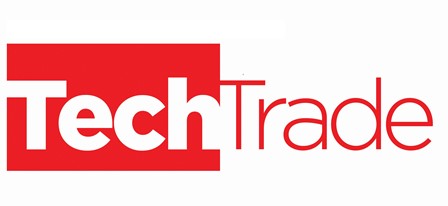
MSPs look to smaller clients for big wins
Whatever many of us might think of 2021, good or bad, it’s a good time to be a managed service provider (MSP). You may not have been aware of that fact but who can argue with the 98% of MSPs in Ireland and the UK who agreed with that statement in Datto’s Global State Of The MSP Report 2021.
The strange part is that it’s not about the money they’re making. According to the survey, 47% of global MSPs enjoyed “a modest increase in revenue as a result of Covid-19” but 18% experienced a decrease. More than a third (36%) witnessed no change at all.
So maybe it’s about the money they think they’ll make in the future. The survey reported that 96% expect revenue to increase over the next three years and almost half predict growth of more than 5%.
The bullishness over future prospects is tempered slightly by concerns that competition (34%) will be their main challenge going forward. This is the first time it has ever been the biggest cause for concern, suggesting that MSPs are worried about the growing competitiveness of the managed services space. This may also explain why over a quarter (27%) are worried about revenue growth in the future and a very similar proportion (24%) are anxious about profitability.
While the MSP space is growing, most MSPs and their clients are not big businesses. The majority of MSP clients globally are in the 50-100 employee bracket (24%), followed by 25-50 (20%) and 100-150 (16%). The average spend on managed services is $13,000 a year.
Most MSPs are not large-scale operations: just under 40% have annual revenues between $1 million and $5 million and 32% have less than $1 million.
The survey claims there is clear evidence “SMB cloud use has gone mainstream” with 99% of clients using the cloud in some capacity and 50% shifting more than half of their workloads to the cloud. As many as 93% of MSPs expect to have at least half of client workloads in the cloud in the next three years.
In terms of workloads already in the cloud, database servers (88%), email servers (87%) and application servers (84%) were the most common and expected to remain so for the next three years.
Quizzed about their current managed services offerings, 97% of MSPs said they offer cloud-based infrastructure design and management, 93% provide office productivity and 88% offer business continuity and disaster recovery.
Over the next 12 months, roughly a quarter are planning managed services offerings in a number of other areas, including collaboration software, application integration/middleware, video surveillance and storage design and implementation.
Unsurprisingly, security has become a major focus for MSPs as SMBs seek out security expertise in the face of increased ransomware attacks and security breaches. Only 1% of respondents do not offer managed security services.
Asked to rank their most valuable solutions, security tools dominated, such as advanced endpoint security, email security, data loss prevention and identity management/single sign-on.
MSPs rely on a number of different methods to provide those services, ranging from partnering with security vendors (67%), managed security service providers (61%) and managed detection response providers (44%).
The report notes that despite Covid-19 MSP revenues were not significantly affected by the pandemic. “This is quite remarkable and speaks to the strength of the managed services business model,” it states. No wonder so many think this is a good time to be an MSP.
Like what you see?

Ireland’s ONLY dedicated news feed for the distribution and retail channel.
Our editorial mix includes channel news, trend analysis, Deals Done, regular ‘Channel Chat’ interviews and strategic product focuses. This is a vital medium through which the technology channel can network and identify new business opportunities.
Want more?





Subscribers 0
Fans 0
Followers 0
Followers